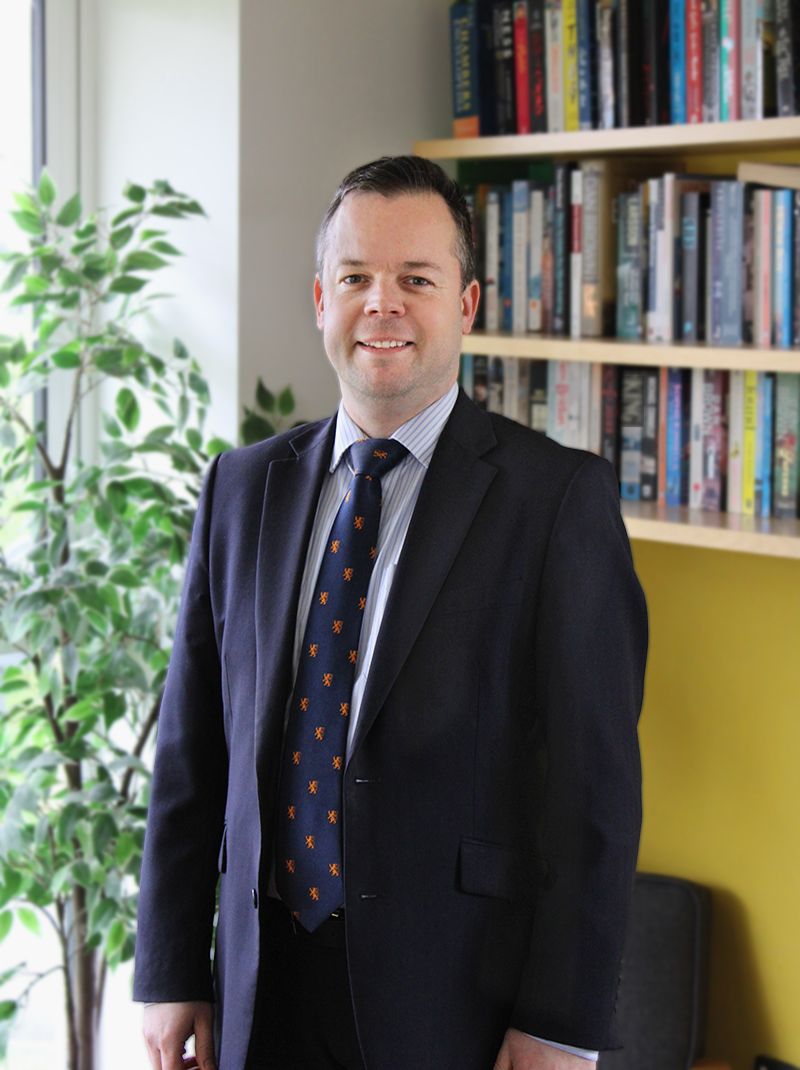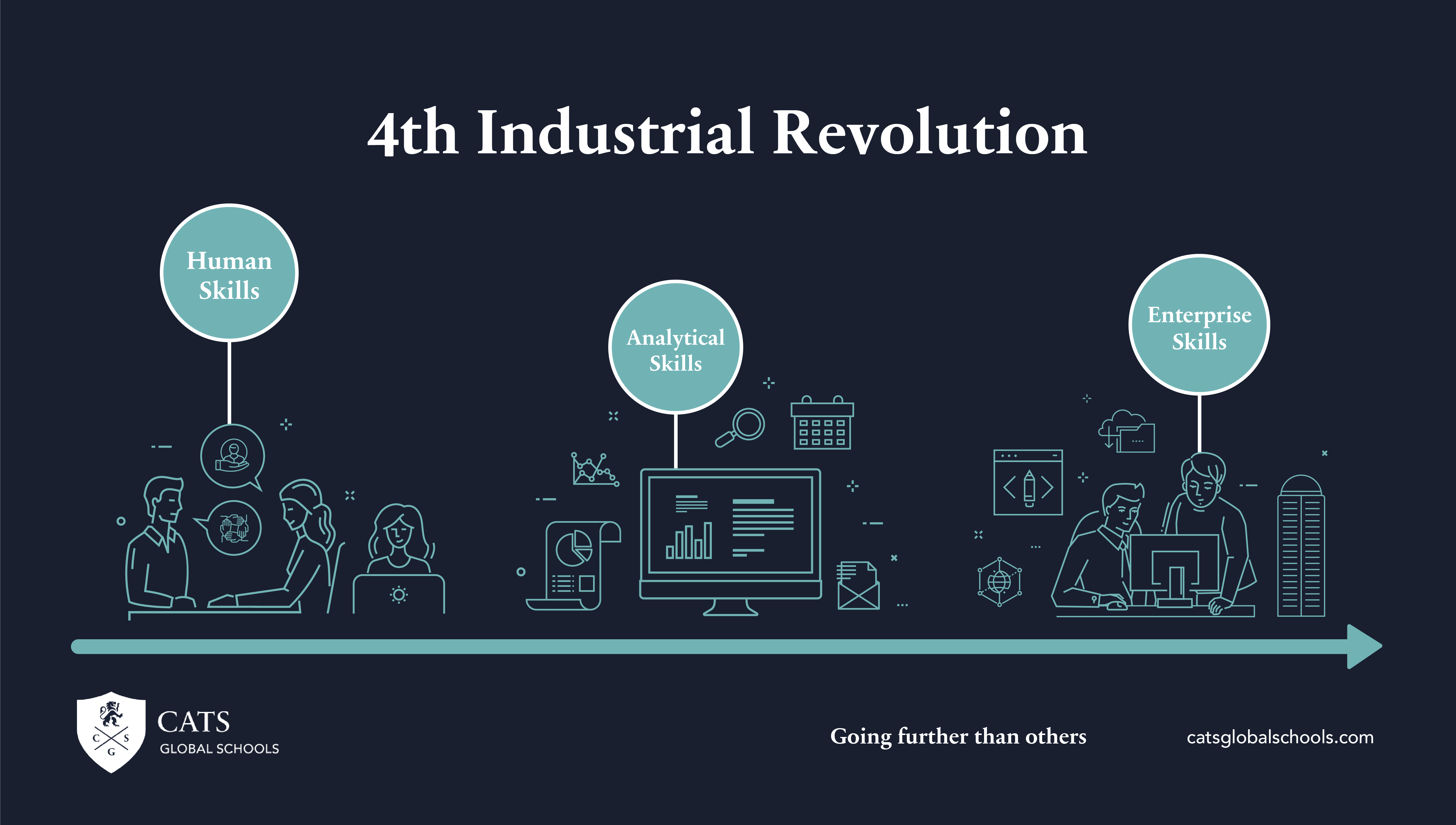4th Industrial Revolution
“The narrow past approach of learning by rote has delayed our progress. Learners today need to be resilient, naturally inquisitive, adaptable and emotionally intelligent.”
– Jason Lewis, Principal, Bosworth Independent College

“There is something that artificial intelligence cannot do, be human. Our education and pedagogy will play a significant role in an increasingly narrow definition of what it means to be uniquely human.”
James Slocombe
Principal, CATS London

“If education is to be effective, it must give real weight to the development of emotional and social skills in at least equal measure to academic progress.”
Dominic Tomalin
Principal, CATS Cambridge
Human skills

“Tomorrow’s leaders will work in a different way, so education must develop soft skills and character as much as it does knowledge.”
Benson Ferrari
Headmaster, St Michael’s School
Analytical skills

“We encourage students at all levels to think beyond the curriculum and engage in issues of local and global significance. One of the ways in which we promote curiosity is through the extended project qualification.”
Severine Collins
Principal, CATS Canterbury
